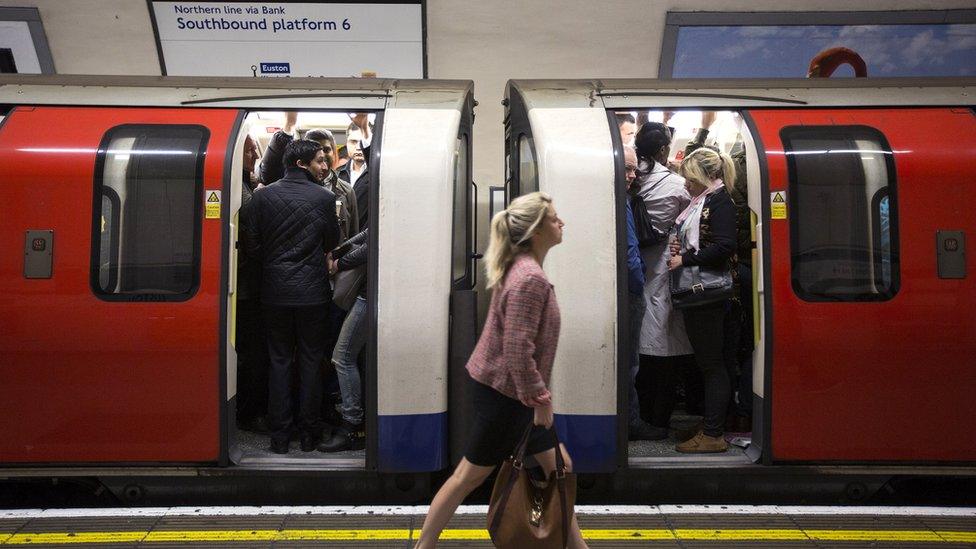Coronavirus: TfL will need future bailouts, says credits agency
- Published
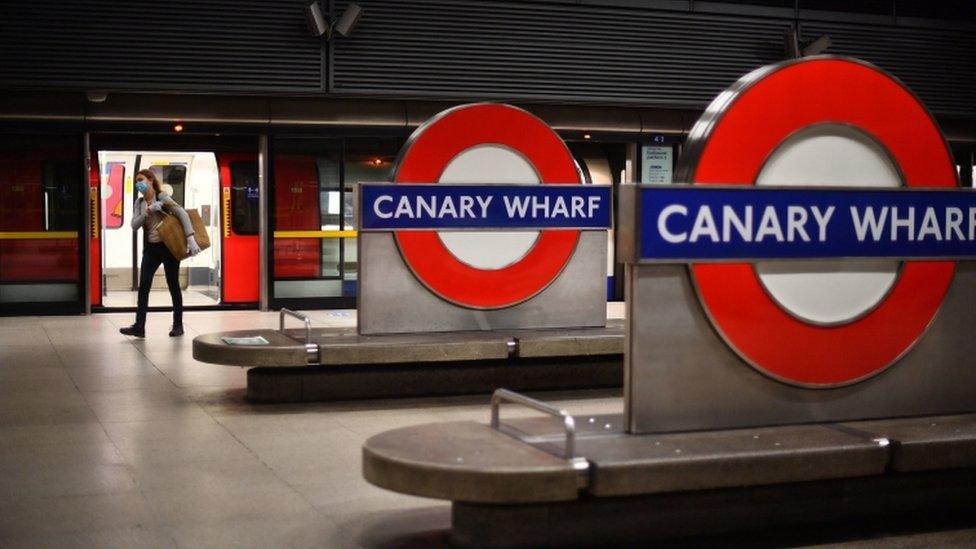
Moody's recently downgraded Transport for London's long-term ratings to A1 Negative, making it more expensive to borrow money.
Transport for London (TfL) will need government cash for the next two years due to the impact of coronavirus, according to ratings agency Moody's.
The transport body has so far received two bailouts from the government during the pandemic worth a combined £3.6bn.
Moody's estimates TfL will lose £3.5bn through lost passenger fares and other income this year alone.
A TfL spokesman said: "We have always been clear that further financial support will be required.
"We have worked hard to keep our customers and staff safe during the coronavirus pandemic and keep services operating.
"As outlined in our funding agreement TfL will work with government towards a plan to reach a financially sustainable position as soon as possible."
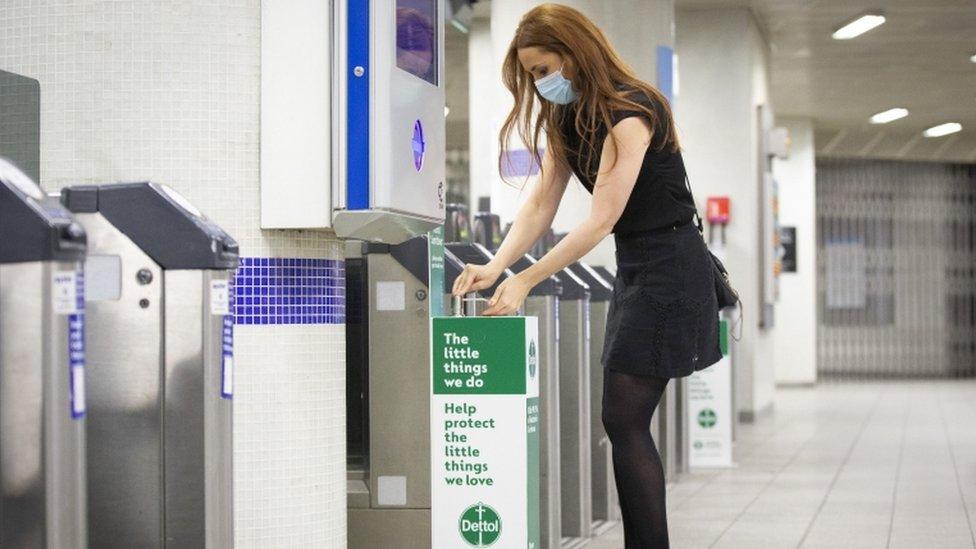
Passenger fares made up 47% of TfL's income in 2019
Moody's has released its analysis of TfL's second bailout - worth up to £1.8bn - and said the government body will need to use £600m of its cash reserves to pay for an expected shortfall in revenue.
The agency said this will "weaken TfL's ongoing liquidity buffer", making it harder for it to deal with a financial crisis in the future.
Moody's recently downgraded TfL's long-term ratings from Aa3 to A1 and rated the outlook as negative, external.
Its lower credit rating means it is also more expensive for it to borrow money.
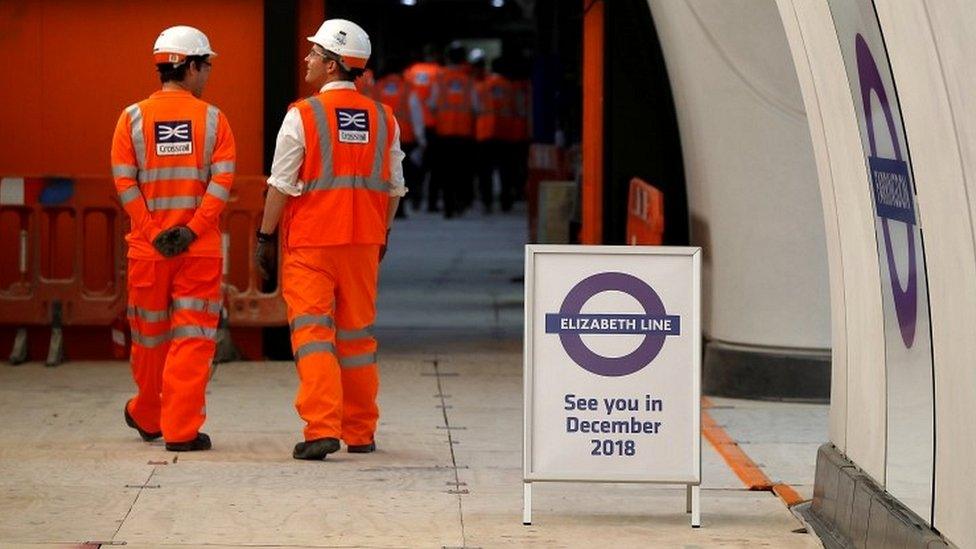
Delays to Crossrail, which was due to open in 2018, continue to impact TfL's finances, Moody's found.
The latest bailout is based on the assumption TfL will maintain minimum cash reserves of £1.2bn.
It "remains vulnerable" to future economic problems due to its reliance on fares - which made up 47% of its income in 2019 - Moody's found.
Delays to Crossrail, which was due to open in 2018, continue to impact its finances, the agency added.
- Published27 October 2020
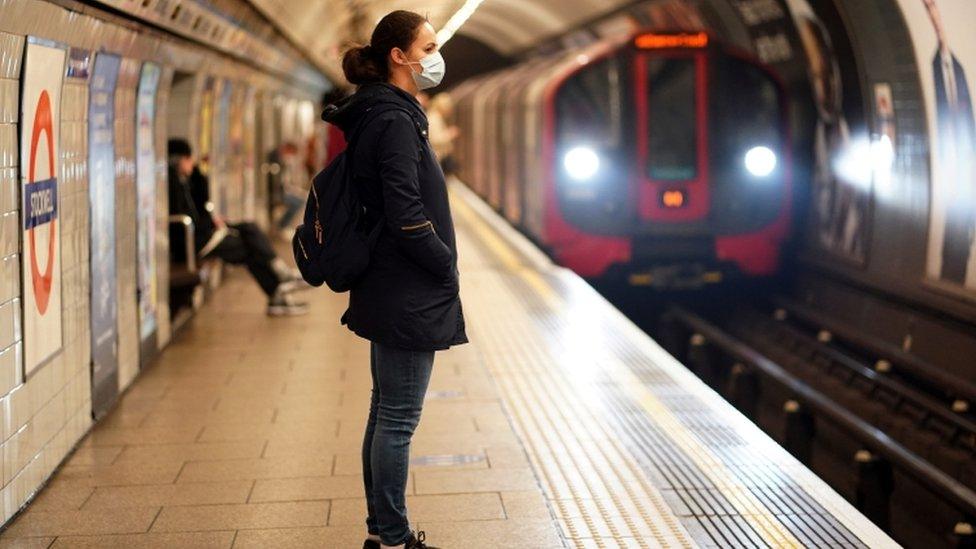
- Published21 August 2020

- Published8 September 2020
- Published14 May 2020

- Published18 November 2016
